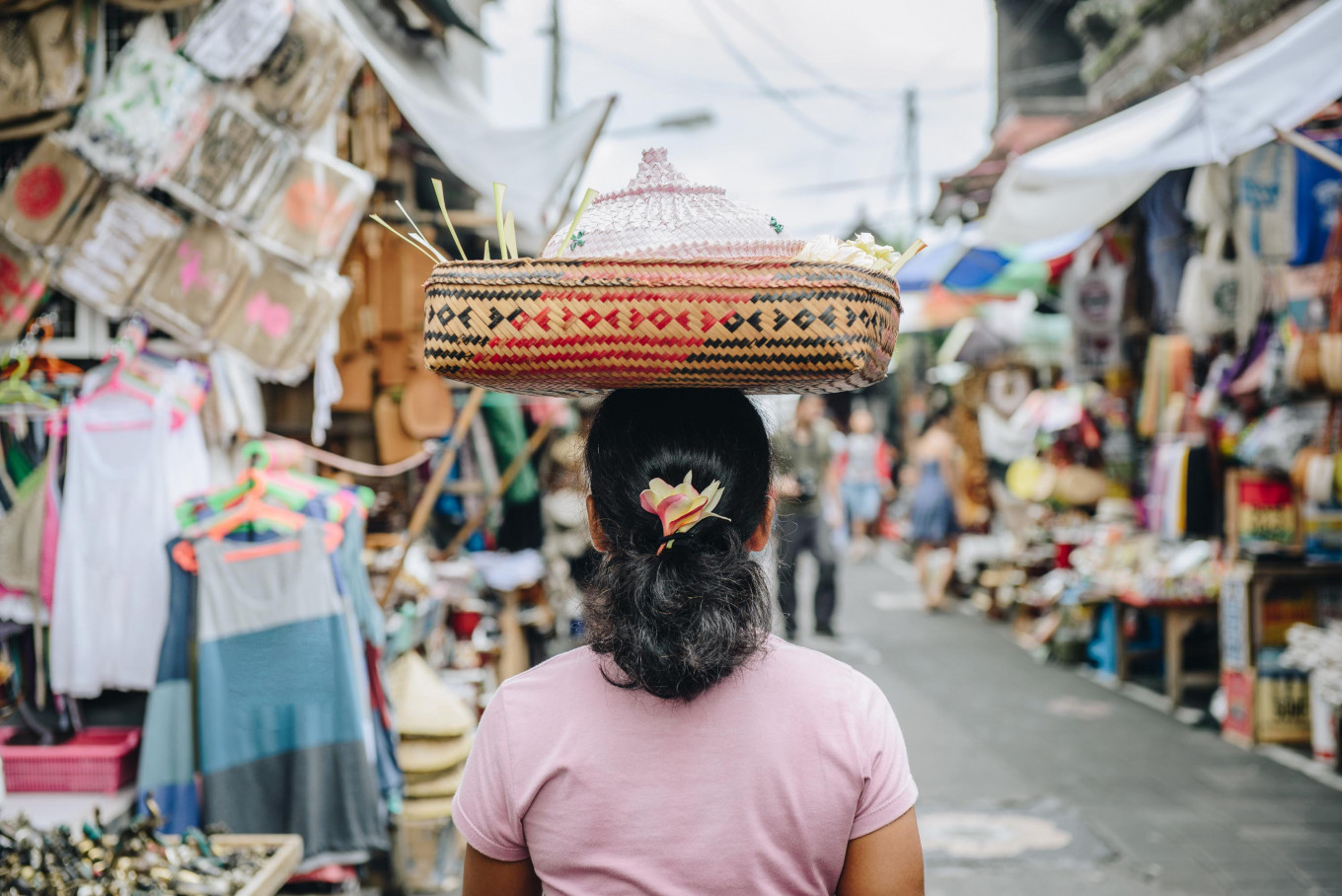Popular Reads
Top Results
Can't find what you're looking for?
View all search resultsPopular Reads
Top Results
Can't find what you're looking for?
View all search resultsUN highlights women's exposure to shocks
Change text size
Gift Premium Articles
to Anyone
A
new report by UN Women reveals how COVID-19 exposes women's vulnerability to economic shocks and deepens inequality that has existed in Indonesia since before the pandemic, which is likely to reverse progress in achieving the Sustainable Development Goals (SDGs).
The report titled “Counting the costs of COVID-19, assessing the impact on gender and the achievement of the SDGs in Indonesia” was released on Friday. It is based on a survey sent via SMS through Indosat Ooredoo's network to randomly selected mobile users in April and July 2020.
It shows that lockdowns and other measures applied to contain the virus in Indonesia had a sizeable effect on the economy. However, women, who largely depend on income from family businesses, have seen substantial cuts -- as many as 82 percent of them noted drops in this income source. Although 80 percent of men saw similar cuts, evidence suggests that men in Indonesia benefited from a wider range of income sources.
Moreover, the second-most common income source for women, subsidies and other forms of government support, also declined faster for women than for men; 24 percent of women noted drops, compared to 20 percent of men.
The report also shows that only 52 percent of women were employed prior to the crisis, compared to 72 percent of men. An estimated 82 percent of them were engaged in informal employment.
Since the onset of COVID-19, informal-sector workers have been losing their jobs much faster – 46 percent of the male and 39 percent of the female informal workers have lost their jobs.
For those who lack unemployment benefits, this can have catastrophic consequences. Among the informal-sector workers, an estimated 63 percent of the men do not receive unemployment benefits or other forms of government support compared to 80 per cent of the women.
Furthermore, the increased domestic and care workload associated with COVID-19 may also push people to work fewer paid hours. More than half of the working population (59 percent of women and 57 percent of men) have seen reductions in paid work time since the crisis began. This results in pay and income cuts for many – 64 percent of the men and 49 percent of the women noted reductions in income from paid jobs.
The report also shows that the COVID-19 crisis has disproportionately affected women’s mental and emotional health. Even though health data on contagion and death rates reveal that men are more likely to both contract and die from the virus, an analysis of data on mental health shows that women are disproportionately more likely to note increases in stress and anxiety since the spread of COVID-19.
More women than men deal with sick family members, and caring for them adds to their already expanding care and domestic workload. Those factors, coupled with anxiety over job and income loss and the effects of the lockdown on gender-based violence, may be contributing to the disproportionate worsening of mental health among women, the report says.
In addition, school closures as part of key preventive measures to curb the spread of COVID-19 translate into additional demands on parents. Evidence shows that women have been more likely to step up with teaching, instructing and training children. An estimated 39 percent of women and 29 percent of men spend more time on these tasks since the start of the pandemic.
Along with schooling, women play an important role in the promotion of hygiene routines within the household. Their access to reliable sources of COVID-19 information is therefore essential. In Indonesia, however, more women find the information they receive confusing or contradictory.
"The provision of comprehensive data regarding the extent to which the COVID-19 pandemic affects gender and the achievement of the Sustainable Development Goals in Indonesia is needed to determine future policies that are more responsive and effective," said Women Empowerment and Child Protection Minister I Gusti Ayu Bintang Darmawati in a press statement.
“This report shows clearly that women are disproportionately affected by the pandemic. The data collected is very important to ensure that existing interventions are designed for women, especially those in the vulnerable group. This latest data is expected to help the national COVID-19 task force, development partners and the private sector in Indonesia in making decisions to support a strong response to COVID-19 in order to meet the needs of women and girls, and in promoting rapid recovery efforts," said Jamshed Kazi, UN Women representative for Indonesia and liaison to ASEAN. (iwa)
Editor’s note: This article is part of a public campaign by the COVID-19 task force to raise people’s awareness about the pandemic.










